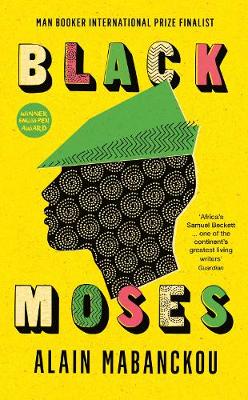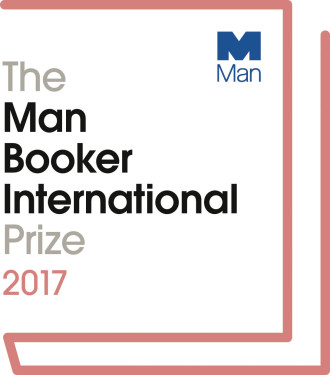Alain Mabanckou, Black Moses (2015)
Translated from the French by Helen Stevenson (2017)
Papa Moupelo gives him the name “Tokumisa Nzambe po Mose yamoyindo abotami namboka ya Bakoko”, which translates into English as “Thanks be to God, the black Moses is born on the earth of our ancestors”. The boy has great affection for the priest at the orphanage in Loango; but, one day in Moses’ teens, Papa Moupelo doesn’t arrive for his weekly visit. His hut is turned into the meeting place of the “National Movement of Pioneers of the Socialist Revolution of Congo”. The old religion is out: the new age has begun.
Well, that depends on how you look at it. The orphanage’s Director takes the opportunity to strengthen the position of himself and his favourite nephews; kids like Moses don’t feel much benefit. The first half of Mabanckou’s novel tells how Moses negotiates life at the orphanage, buttering up the Director by parroting his propaganda; and becoming the accidental associate of the twins who bully the other orphans.
In the novel’s second half, Moses has escaped to the city of Pointe-Noire with the twins, where he is now a member of their gang. He may come to fancy himself a Robin Hood figure, but can Moses find his own people to lead – and to where?
Black Moses starts off as an engaging tale of a childhood shaped at a remove by political change. Then it expands its web, always with the personal at the forefront; before tightening its strands, until the personal becomes the heart of novel’s end.
Should this book reach the MBIP shortlist?
By now, I have a greater sense of the books on the longlist; in turn, I can start to see the shape of the potential shortlists I might choose. Some of the slots are already filled, but there’s still plenty of room; and I could see a place for Black Moses. As with The Traitor’s Niche, this is my first time reading the author, and won’t be the last. I’d be happy to see Mabanckou’s novel on the official shortlist.


11th April 2017 at 4:47 pm
I was just at Tony’s. He was a bit less taken. What do you think of his view that the two halves of the book lead to a certain imbalance in it?
As I said there, I loved Memoirs of a Porcupine (review at mine) but I haven’t read Broken Glass yet so that has to be my next by him.
11th April 2017 at 8:18 pm
Hi Max. I did think along the same lines as Tony at times while reading the novel. But by the time I’d finished, and in retrospect, I realised it had the same kind of long-tail momentum as The Luminaries (not nearly to the same degree by any means, but not insignificantly either). I could also see why it had to have that structure: Mabanckou is writing in Moses’ voice, and he structures the story as Moses would structure it – so much is rooted in Moses’ childhood that he must dwell on it.